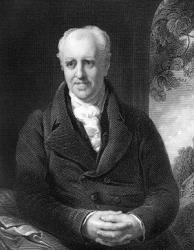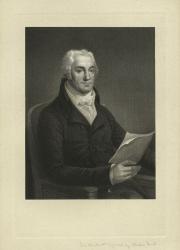1770 - 1848 Person Name: A. Broaddus Hymnal Number: d157 Author of "O give me, Lord, my sins to mourn" in Select Melodies, comprising the Best of Those Hymns and Spiritual Songs in Common Use Broaddus, Andrew. (Caroline County, Virginia, November 4, 1770--December 1, 1848, Salem, Virginia). Baptist. Reared an Episcopalian; became Baptist, 1789. Honorary D.D., 1843, Columbian College, Washington, D.C., "humbly refused." Ordained October 16, 1791. Pastorates at Burrus, 1793-1820; while at Burrus also served Bethel, Fredericksburg, Upper Zion, Beulah, and Mangohick on rotational basis; Salem, 1820-1848; Upper King and Queen, 1827-1848, all in Viriginia. Author of The Age of Reason and Revelation (1795) (a reply to Paine's attack on Christianity); A Bible History for Schools and Families (Baltimore, 1816); Help for Children: Three Plain and Easy Catechisms (American Baptist Publication Society, n.d.). Edited Christian Baptist (1826-1830) and wrtoe for it under the pen name "Paulinus" and for Religious Herald under pen name "Christianos" arguing with Alexander Campbell. Designed a seal for Richmond College, 1843 (now University of Richmond).
Published Collection of Sacred Ballads (1790) of songs in popular use at the time; compiled Dover Selection (1828) (xvii, 275, vii, 75p.), 2d ed, 1829 (viii 1 l., 11-412 p.) at request of Dover Association of Virginia Baptists; Virginia Selection (1836) (xxviii, 447 p.), rev. enl. ed. (600 p.) 1840, reprinted until 1876.
Hymns:
In the Dover Selection (1829): Help thy servant, gracious Lord, 192 (labelled "Original")
In the Virginia Selection (1840), three hymns indicated by initials "A.B.": Help thy servant, gracious Lord, 665; Send thy blessing Lord we pray, 667; Restless thy spirit poor wandering sinner, 708. One hymn (Labelled "Chiefly original"): How solemn the signal I hear! 495.
--Martha C. Powell, DNAH Archives
Andrew Broaddus


 My Starred Hymns
My Starred Hymns




